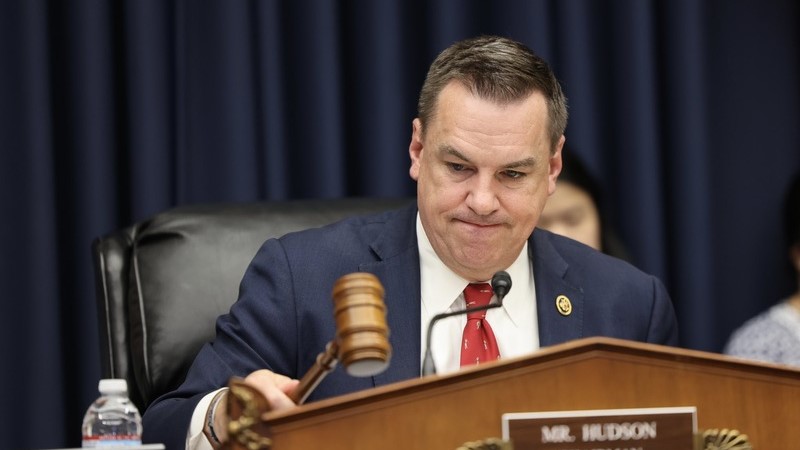
Rep. Richard Hudson, R-N.C., said Wednesday that getting the Broadband Equity, Access, and Deployment (BEAD) program off the ground – along with key permitting reforms – is his “top priority” this Congress.
Speaking on Oct. 9 during an event hosted by Punchbowl News, Hudson emphasized that closing the digital divide is not only an economic imperative but also a matter of national security.
“We’re in a competition now with China to see who can get broadband or get 5G and then 6G fastest, who’s going to win the race to AI – and we have to win that,” said Hudson, who serves as the chairman of the Communications and Technology Subcommittee on the House Energy and Commerce Committee. “It’s crucial economically, and it’s absolutely essential for our national security that we continue to outpace China and we beat them.”
“We’ve got to get the BEAD program cranking. We’ve got to get broadband access, we’ve got to build more towers, and to do that, we need permitting reform,” he said.
“We need a lot more towers. We need a lot more fiber in the ground, and so, I’m very hopeful,” Hudson continued. “Both sides, Republicans and Democrats, I think, understand the need for permitting reform. We’ve got to get some kind of deal done this Congress. So, that’s my top priority now.”
The $42.45 billion BEAD program was created as part of the Bipartisan Infrastructure Law. The program provides broadband access grants to underserved or unserved communities.
The broadband funding aims to close the digital divide by expanding high-speed internet access through funding planning, infrastructure deployment, and adoption programs across all 50 states, the District of Columbia, and U.S. territories.
However, in March, the Trump administration announced it would conduct a review of the BEAD program. Secretary of Commerce Howard Lutnick claimed the program has “not connected a single person to the internet and is in dire need of a readjustment.”
The Commerce Department unveiled its changes to the program in June, touting a new “tech-neutral” approach and tossing its previous fiber-centric efforts to the curb. Lutnick said the updates removed what he called “burdensome regulations” pushed by the Biden administration.
Notably, Hudson introduced the Streamlining Program Efficiency and Expanding Deployment (SPEED) for BEAD Act in March, which also looked to remove regulations in the BEAD program.
“We want competition. We want lots of folks out there competing to lay the fiber, build the towers, and so, that’s why I introduced SPEED for BEAD to try to take away all those extra restrictions that have nothing to do with getting fiber laid or getting towers built,” Hudson said. “I was glad to see the [Trump administration] adopt a lot of that.”
“A lot more folks now are applying to get involved, and so, I think we’re gonna have a better deployment. Almost every state now has resubmitted their applications. I know the administration is moving very quickly to try to get those approved,” he added.
The lawmaker said he believes the Commerce Department’s National Telecommunications and Information Administration is “close to awarding grants” and is “moving very quickly” to do so.
“I think we’re getting criticism now because we’ve reworked the system, and the folks who sat on it for three years are now criticizing us for taking a few months to retool it, but I think long term, you’re going to see much quicker deployment,” Hudson said, adding, “I think you’re going to see … more people participate, and you’re going to see better coverage. So, I’m very optimistic.”
